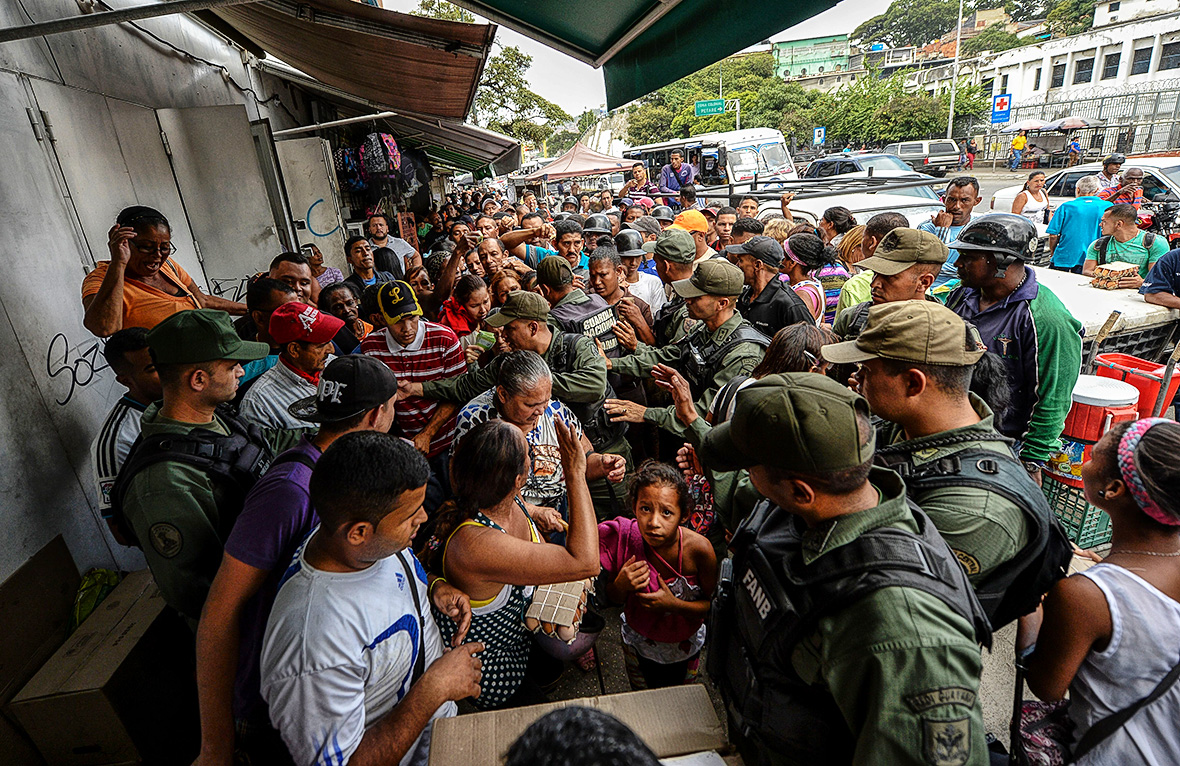Venezuela: Army controls huge queues of people waiting to buy food and basic necessities
President Nicholas Maduro has instructed the armed forces to monitor long queues in case violence erupts.
Hundreds of people have had to queue outside Venezuelan supermarkets in the sweltering heat, in order to buy basic household necessities while under the watchful eye of the armed forces. Venezuelan President Nicholas Maduro has instructed the military to monitor the long queues, after the country's severe food shortages began to provoke unrest among civilians.



As the country's economy crisis worsens, Maduro has asked that the armed forces also co-ordinate the distribution of basic necessities such as food and medicine in an effort to combat the worsening shortages. Maduro said he was acting under an economic emergency decree, which he issued on 12 July, in a bid to regulate the distribution, sale and purchase of food, medicine, personal hygiene items and home cleaning products. He has also tried to tighten a rationing system that gives Venezuelans access to staples only on certain days. However, it not clear whether this strategy is working. In the past month, at least five people have been killed during clashes with security forces sparked by food riots.
Maduro passed the decree through economic emergency powers which mean it doesn't have to be approved by congress, which is controlled by the opposition following last year's sweeping victory in legislative elections. Despite relying heavily on the military, the Venezuelan President lacks military background, unlike his predecessor and mentor, the late President Hugo Chavez. Since taking office in 2013, Maduro has expanded the role of the armed forces in running the oil-dependent economy.



Families can spend up to at least eight hours queueing for just one box of goods. The average Venezuelan shopper spends 35 hours waiting to buy subsidised goods each month, that's three times more than in 2014, according to the polling firm Datanalisis. "As the economy breaks down, life is telescoping to be just lines," Datanalisis president Luis Vicente Leon told the Associated Press. "You have masses of people in the streets competing for scarce goods. You're inevitably going to get conflict, fights, tricks, you name it." Another study, conducted by Simon Bolivar University reported that nine out of 10 Venezuelans say that they can't buy enough to eat, as scarcity drives up prices.



Venezuela's vast oil wealth once fuelled a bustling economy but years of mismanagement under a socialist government ground brought much of the nation's production to a halt. Since then, the country has grown to rely on imports and therefore, the price of everyday goods has risen, meaning that even the most basic things are limited and often unaffordable.









© Copyright IBTimes 2025. All rights reserved.




















